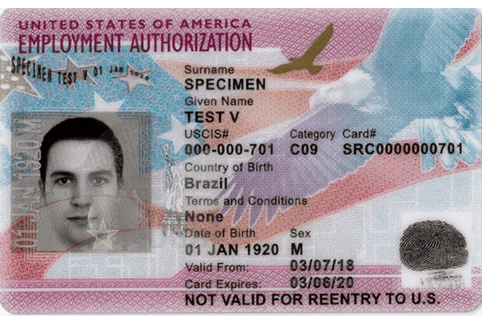This information is for people in the U.S. If you are not in the U.S., find international help.
Categorías de estatus afgano
Afghan evacuees could have humanitarian parole, a Special Immigrant Visa (SIV), asylum, or refugee status. Most Afghan evacuees will need to file additional paperwork to get legal status that allows them to stay in the USA permanently.
You can apply for more than one immigration status at the same time. Filing an application for asylum at the same time as your SIV application will not slow down the process. Afghans are encouraged to apply for permanent status as soon as possible.
- Find official guidance in USCIS Information for Afghan Nationals.
It is important to seek legal advice from an immigration lawyer or accredited representative. You can also find help with the Afghan Coalition, the Afghan Association of Central Virginia, and Afghan Evac.
Beneficiario de parole humanitario
If you are a humanitarian parolee not eligible for the SIV program, your status is temporary. It lasts for up to 2 years. You can apply for re-parole to temporarily extend your protection while you apply for a different status.
Parolees can not get a Green Card. You must be approved for a different status to get lawful permanent residence. The best option for Afghan parolees may be to apply for asylum.
Los afganos que estén en libertad condicional y tengan solicitudes pendientes de nueva libertad condicional, asilo u otro ajuste de estatus aún pueden obtener beneficios incluso si su período de libertad condicional actual finaliza.
If you received a notice stating your parole is ending and you must leave the U.S., it may not be correct if you entered via OAW (but could be valid if you entered via CBP One). If you are affected, talk to an immigration lawyer as soon as possible.
Proceso de re-libertad condicional
Si tiene libertad condicional humanitaria a través de la Operación Aliados Bienvenidos (OAW), puede solicitar una nueva libertad condicional. Estas solicitudes se consideran caso por caso.
Si su solicitud es aceptada, podrá continuar viviendo y trabajando legalmente en los EE. UU. durante 2 años más. También seguirá siendo elegible para los servicios de ORR. El gobierno de Estados Unidos podría no permitir que personas con libertad condicional soliciten una nueva libertad condicional por segunda vez.
No es necesario que solicite una nueva libertad condicional si:
- meet the criteria for automatic consideration of re-parole
- tiene una solicitud de asilo pendiente o una solicitud de ajuste de estatus
- solicitó asilo o AOS antes de que expire su libertad condicional inicial
Para solicitar una nueva libertad condicional, debe completar y enviar un Formulario I-131 revisado. Esto se puede hacer en línea o por correo. El formulario I-131 solicitará tanto una nueva libertad condicional como una extensión de su autorización de trabajo. No se necesita ningún otro formulario.
You will have to pay a $1,000 fee unless you qualify for an exception. The U.S. government will notify you and provide instructions on how to pay this fee if you are approved for parole. Do not pay this $1,000 fee when you submit Form I-131.
Consejos para solicitar una nueva libertad condicional:
- Revise su tarjeta EAD para asegurarse de que la información coincida con la que puso en el formulario. Esto incluye la ortografía de su nombre, fecha de nacimiento y número A.
- Presentar su declaración en línea puede ayudarle a evitar errores comunes. Si decide presentar su solicitud en línea, necesitará una cuenta myUSCIS.
- Presente su solicitud lo antes posible para no correr el riesgo de una brecha en su estatus y perder el acceso a beneficios y servicios.
- Puede solicitar una nueva libertad condicional incluso si tiene una solicitud pendiente para otro estatus, como asilo.
- Revise una lista de documentos para preparar, incluida una copia de su EAD y I-94. (Lista también en دری/Dari y پښتو/Pashto)
- Revise estas preguntas frecuentes
If you change your address, you must notify USCIS within 10 days, even if you are moving to a temporary location. Use the USCIS Change of Address form.
Visa especial para inmigrantes (SIV)
You can apply for an SIV if you were employed by the U.S. government, a U.S. contractor, or ISAF in Afghanistan for at least one year. Once you have a Chief of Mission Approval Letter (and, if required, an approved I-360 SIV), you can apply for a Green Card with Form I-485. You may have to attend an interview at your local USCIS office. You may be asked questions related to your status.
- There is no fee to apply for a Green Card for Afghan SIVs with USCIS. You must pay a fee when filing in Immigration Court.
Asilo
If you were forced to leave Afghanistan to escape persecution and you do not have SIV or refugee status, you may be eligible for asylum. Applying for asylum is a long process, but it offers a pathway to legally stay in the U.S. permanently.
You typically must file your application within one year of arrival in the USA. You may be eligible to apply after one year if you apply before your parole expires. Learn how to apply for asylum.
Once you are approved for asylum, you will be eligible for certain benefits. You can apply for your Green Card one year after your asylum case is approved. You must be physically present in the U.S. for at least one year to apply. You may have to answer questions about your status.

Aprende cómo encontrar ayuda gratuita o de bajo coste de abogados de inmigración y representantes legales de confianza.
Refugiado
Si ingresó a los EE. UU. como refugiado, puede solicitar su Tarjeta Verde un año después de su llegada. Su agencia de reasentamiento puede ayudarle a encontrar ayuda legal para completar esta solicitud.
Beneficiario de Estatus de Protección Temporal (TPS)
TPS Afghanistan ended on July 21, 2025. You can no longer apply for or renew TPS Afghanistan.
Some Afghans have been detained by ICE during routine check-ins or court visits. Always carry proof of your immigration status and any pending case.
Green card
Many Afghans, including refugees, asylees, SIVs, and their families, can apply for a Green Card after waiting a certain amount of time. A Green Card allows you to live and work in the USA permanently.
Permiso de trabajo
You can apply for a work permit or an Employment Authorization Document (EAD) if you have a qualifying status. This includes refugees, asylees, temporary protected status, and parole.
Permiso de viaje
Hay permisos de viaje disponibles para personas con TPS. Se le conoce como libertad condicional anticipada. Muestra a los funcionarios de inmigración que usted tiene permitido viajar al extranjero y regresar a los EE. UU.
Puedes solicitar un permiso de viaje presentando el Formulario I-131. Sigue las instrucciones del aviso del Registro Federal cuando solicites un permiso de viaje.
Antes de viajar fuera de los EE. UU., hable con un abogado. Las reglas de inmigración pueden cambiar y es importante saber si es seguro viajar.
There is a full travel ban for people from Afghanistan. This means you are not allowed to enter the U.S. unless you qualify for an exception, such as qualifying for a Special Immigrant Visa or refugee status. The ban is currently being applied to the family reunification of asylees, but a court case may change this.
Reunirse con miembros de la familia
You can apply for your spouse and unmarried children under 21 to come to the USA. There is no fee to apply for Form I-730.
- Los titulares de la tarjeta verde presentan el formulario I-130
- Los refugiados y asilados presentan el Formulario I-730
- Los titulares de la tarjeta verde SIV presentan el formulario I-824
- Expediente DS-4317para personas en libertad condicional
Public benefits and ORR services
The U.S. government offers public benefits for essential services, including food, housing, healthcare, and education. You may be eligible for public benefits based on your immigration status and state rules.
Many lawful immigrants, including refugees, asylees, trafficking survivors, and TPS holders, may no longer get certain public benefits – even if they used to qualify. These policies will go into effect on different dates.
Office of Refugee Resettlement (ORR) services help refugees, asylees, SIV holders, and other new immigrants pay for basic needs as they settle in the United States.
Algunos beneficios y servicios de la ORR se suspendieron o cambiaron debido a las políticas del gobierno de Trump. Las agencias de reasentamiento volvieron a ofrecer servicios limitados a fin de ayudar a los refugiados recién llegados y a los SIV afganos.
Más de USAHello
¿Buscas información específica?
La información de esta página procede de DHS, USCIS, IRAP, CLINIC, MPI, y otras fuentes de confianza. Nuestro objetivo es ofrecer información fácil de entender que se actualice con regularidad. Esta información no constituye asesoramiento legal.




